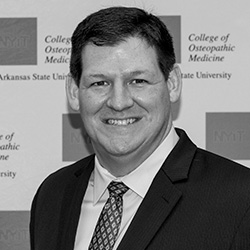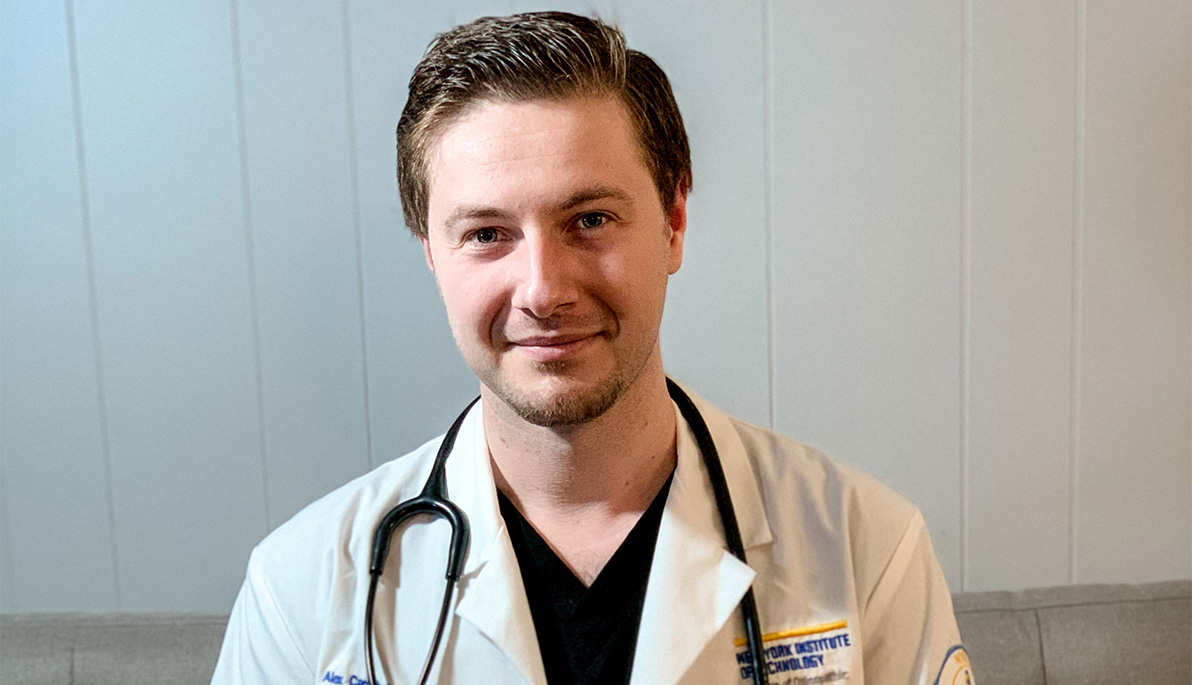News
Medical Student Masks Up the Underserved
February 16, 2021
As the global pandemic rages on, Alex Campbell, OMS III at NYITCOM-Arkansas, believes there’s never been a more important time for medical students to get involved in public health education. He also discovered that it’s often not enough to simply inform the public.
Campbell is conducting his third-year clinical rotations in El Dorado, Ark. He heard about the South Arkansas Developmental Center for Children and Families (SADCCF) through a neighbor and began working with the organization to help their clients understand some of the basic actions they could take to protect themselves from COVID-19 and help slow the spread.
“Last summer, I started working with SADCCF to provide educational material on how masks work and why it’s important to wear them, but the education alone didn’t matter because the residents didn’t have the means to get masks,” Campbell said. “These are people that are living on state assistance. Not only were the people that care for these people having trouble getting masks but on top of that, the residents themselves were having trouble getting them.”
Campbell reached out to an uncle who is a physician, and through the connection, he purchased around 1,000 masks that were distributed to SADCCF community homes.
“It’s very little in terms of out of pocket expense for me,” Campbell said. “Hopefully it has prevented some transmission of COVID. These are the people that are in high-risk categories and are much more likely to experience severe cases and even death if they contract COVID. They’re completely dependent on other people, so I was glad to be able to help them in any way possible.”
Campbell also secured a number of cloth masks that were given to caretakers and food service employees at the facilities, but it was important that the residents receive disposable surgical masks.
“Many of these people don’t have the ability to wash a cloth mask even if we gave them those,” Campbell said. “I just point that out because it’s often easy for us to overlook and take for granted the barriers so many people have in terms of health resources.”
Like many medical professionals, Campbell has become increasingly frustrated by the misinformation on social media and people’s resistance to wearing a mask. In response, he regularly shares COVID-19-related educational material on Instagram and Facebook while continuing to speak to groups.
“I’ve had parents of close friends die from COVID,” Campbell said. “Anything I can do to help get the message out, I’m passionate about doing that. I don’t give clinical advice, but general public education of how we can slow the spread and why these practices are so important.”
Campbell, who hopes to practice critical care, always makes certain to check with seasoned physicians to ensure the accuracy of any information before he posts. He’s grateful for the positive feedback he’s received from many NYITCOM faculty members.
“I fully, 100 percent believe in the mission of NYITCOM,” Campbell said. “I chose NYITCOM because I want to serve the underserved and do more in rural medicine, [for] these groups that might be around healthcare but still not have access to it. It’s important to me to recognize why these people don’t have that access and getting help.”

By Casey Pearce




